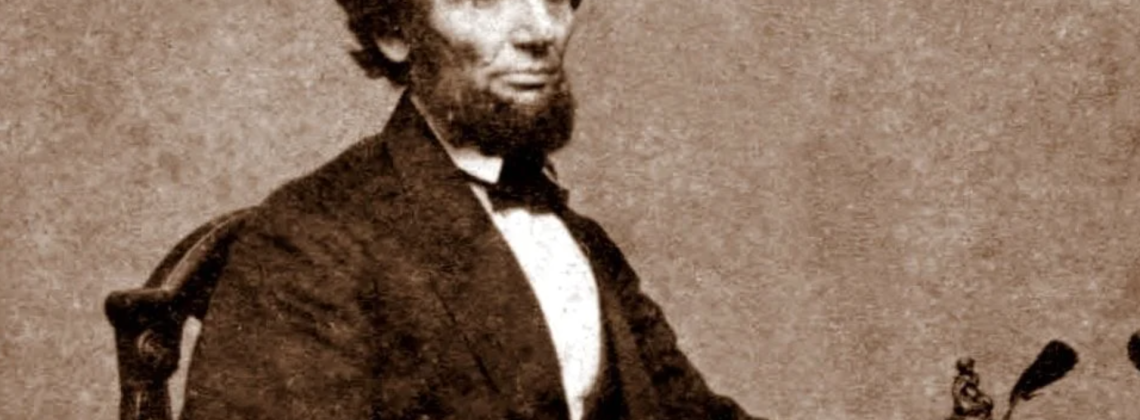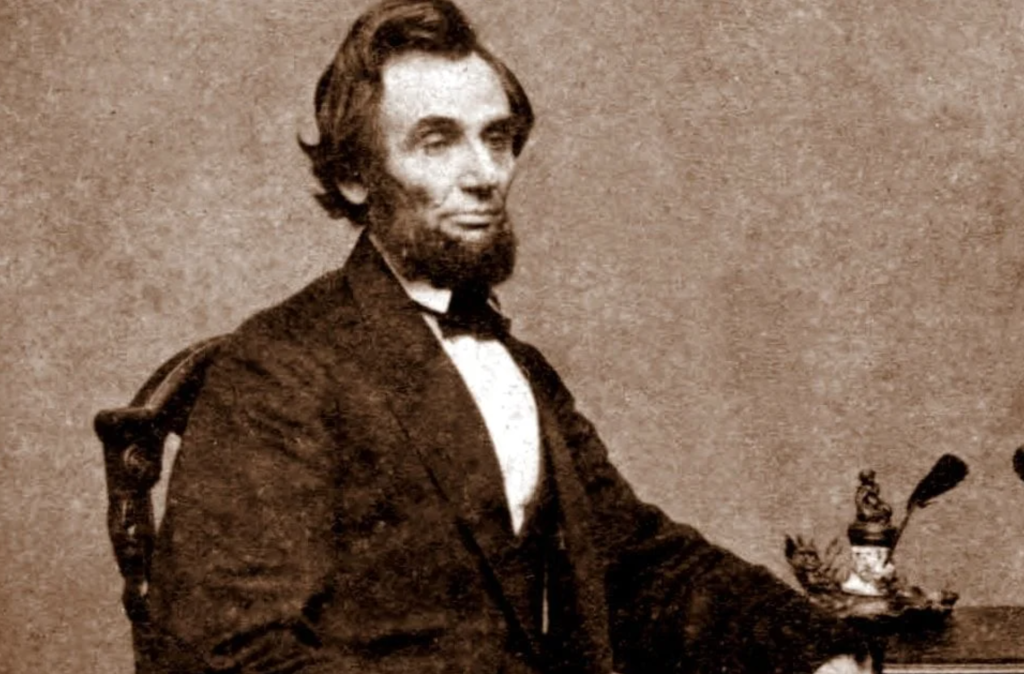

When religious nationalism becomes a religion of nationalism
Righteous Strife: How Warring Religious Nationalists Forged Lincoln’s Union by Richard Carwardine. Alfred A. Knopf, 2025. 624 pp., $35.00
In his Second Inaugural Address in March 1865, delivered only weeks before the end of the Civil War (and his own death), Abraham Lincoln famously observed that the warring sections “both read the same Bible and pray to the same God, and each invokes His aid against the other.”
That Americans fighting to save the Union and Americans waging war to destroy it shared a common religious faith is arguably the greatest irony of America’s greatest trial. The central point of Righteous Strife is that Lincoln’s observation applied equally to political divisions within the North during the war. According to author Richard Carwardine, “Union politics took on the character of righteous strife between two parties, Democrats and Republicans, each convinced that in the scriptural integrity of their political faiths they commanded the moral high ground.”
The book is at once impressive and disappointing. The writing is clear and the scholarship impeccable—exactly what we would expect from its author. Carwardine is emeritus professor of history at Oxford University, a past recipient of the annual Lincoln prize for the best book on the Civil War era, and a recognized expert both on nineteenth-century American evangelicalism and on America’s sixteenth president. And yet, excepting history geeks fascinated by the details of Civil-War era politics, it’s not readily apparent why readers are supposed to care about the patterns Carwardine so carefully describes. And describes is the right word—Righteous Strife is relentlessly descriptive.
Boiled down, when they write their books about the past, historians inevitably engage in some combination of description, explanation, and evaluation. They can ask “What happened?” “Why did it happen?” and “Was it good that it happened?” Carwardine camps out at the first question, deals briefly with the second, and mostly ignores the third. The cost of this narrowness is relevance, for it’s in evaluation that historians can address most directly a fourth important question: “So what?”
The story Carwardine tells is of a Civil-War North roiled by competing religious nationalisms. Each major political party trumpeted a “fusion of religious convictions and nationalist vision” that mutually reinforced the religious and national identities of the party faithful. On one side of the great divide, evangelical supporters of Lincoln’s Republican Party typically “afforded the government an essential and providential role in building a righteous nation.” On the other side of the chasm, religious Democrats—mostly Catholics and non-evangelical Protestants—charged Republicans with favoring a “combined rule of ‘priest’ and politician” and favored localism as a protection against “religious tyranny.”
These differences notwithstanding, both parties opposed secession and were willing to support a war to restore the Union. They differed dramatically in their vision of what a reunited nation should look like, however, and in the fundamental meaning of the conflict that would require hundreds of thousands of Union soldiers to “give the last full measure of devotion.”
Upon the outbreak of war, the Republican Party’s smaller radical wing, which included most prewar abolitionists, immediately called on the president to strike at slavery and cleanse the nation of an abomination. They insisted that God could never bless a war to restore the Union with slavery intact. Northern Democrats countered that God would never bless the fanatical crusade the radical Republicans were proposing. Unlike their Republican counterparts, they tended to find a strong case for slavery in their Bibles, and they ridiculed abolitionist arguments as “unscriptural nonsense.” More pragmatically, they feared that any effort to strike at slavery would increase southern resolve and ensure that the breach between North and South could never be healed, even if northern armies should prevail.
In the end, the outcome would rest with a third group, the Republican Party’s larger, more moderate wing. Like Lincoln himself, this faction opposed slavery on moral grounds and opposed its spread into the western territories. But since before the war they had also accepted that it was constitutional, they steadfastly refused to jeopardize the Union by striking at slavery in the states where it was entrenched. Ironically, given white southerners’ prewar conviction that the North was bent on destroying slavery at all costs, it was the Confederacy’s seeming assault on the flag and on the rule of law that set in motion a gradual transformation among this key group of moderate Republicans. In time, they would come to believe that emancipation as an act of war was both constitutionally justified and essential to Union victory.
It was the wartime conversion of this third group—mostly complete by the war’s mid-point—that created a politically viable foundation for the party’s two landmark actions against slavery during the war. The first was Lincoln’s Emancipation Proclamation of January 1, 1863, which declared slaves free in all areas actively in rebellion against the United States. The second was Congress’s passage in early 1865 of the Thirteenth Amendment to the Constitution which, when ratified, would end slavery permanently throughout the country. Carwardine relates that the Republican Party’s support of that amendment in their platform in 1864 “thrilled antislavery nationalists,” electrified as never before an enormous evangelical voting bloc, and resulted in an unprecedented “interpenetration of religion and politics” in the fall presidential campaign. The key point to remember, Carwardine concludes, is that Abraham Lincoln owed his reelection to “a remarkable intersection of church and political party, unique in its electoral power.”
So what are we to do with this information? Have we learned anything that matters to us, today, anything that might facilitate a quest to live wisely and well? Given that this is a book about religious nationalism during a profoundly polarized era, readers will be forgiven for thinking that it might speak in some way to the controversial role of Christian nationalism in our own contentious historical moment. I think it could have. I think it tries to. I don’t think it succeeds.
Only twice in Righteous Strife does Carwardine break the fourth wall and speak to the present. In the book’s preface he tells readers to notice and be encouraged by one fact above all: Between 1861 and 1865 a radical minority of Northerners ascribed to a “scripturally inspired, Christian nationalism that craved a future in which there was neither black nor white, neither slave nor free.” Then in the book’s final paragraph he notes that the founders of the Republican Party in the 1850s “would not recognize today’s party of that name as a direct descendent.” Whereas the Republican Party of 2025 professes to distrust government, Carwardine observes, those who founded the party 171 years ago “wanted to deploy the full force of federal power to deliver progressive social change.” Theirs was “a self-sacrificial religious nationalism,” a nationalism guided by “the better angels of their Christian nature.” In sum, not all Christian nationalisms are equal.
I want to be careful here. On the one hand, Carwardine is correct in pointing to the chasm that separates today’s Republican Party from its Civil War-era roots. I also share Carwardine’s admiration for Christians in the 1860s who courageously questioned the prevailing racial norms of their day, although I think he exaggerates both their number and influence. But set that aside. What concerns me greatly is the veiled suggestion that Christian nationalism may be defensible or problematic depending on the political policies and social outcomes that it promotes. Dig down to its core, and what is this really but the argument that the end justifies the means?
Whatever its short-term social impact, are there no costs to a politics that invites citizens to merge their partisan, religious, and national identities? Political scientists tell us that such “identity stacking” magnifies partisan loyalties and exacerbates political polarization. Speaking as a Christian, I want to ask as well whether there are no soul costs? Are there no risks for the witness of the church? When do “mutually reinforcing” religious and national identities become inseparable and indistinguishable? When does religious nationalism become a religion of nationalism? Carwardine’s brief praise of the religious nationalism of the early Republican Party dwells only on the impact of evangelicalism on contemporary politics. Before celebrating their impact on public policy, we need to ask about the impact political activism had on evangelicalism.
When Alexis de Tocqueville visited the United States a generation before the Civil War, his interviewees told him repeatedly that the vitality of American Christianity should be attributed, above all, to the clergy’s determination to “mark their distance from, and avoid contact with, all parties.” But as Joshua Zeitz points out in Lincoln’s God, it was during the Civil War that a critical mass of northern clergy “learned to view politics as the natural extension of their Christian ministry.”
Precisely weighing the long-term consequences of that revelation for Christian witness is beyond me, but I can’t help recalling what Tocqueville predicted would ensue. When religion allies itself with a political power, it “embraces the bitter passions of the world,” he observed in Democracy in America. “Alone, it can hope for immortality; linked to ephemeral powers, it shares their fortune and often falls with the fleeting passions that sustain them.” Is this only to be feared when the goals of such an alliance are not “progressive”?
Tracy McKenzie is professor of history at Wheaton College, where he holds the Arthur Holmes Chair of Faith and Learning. He is the author most recently of We the Fallen People: The Founders and the Future of American Democracy.
A very clear, nicely written, and insightful review, for which I a grateful.
I will however take this occasion–since the author brings it up–to remind folk that relevance is overrated.